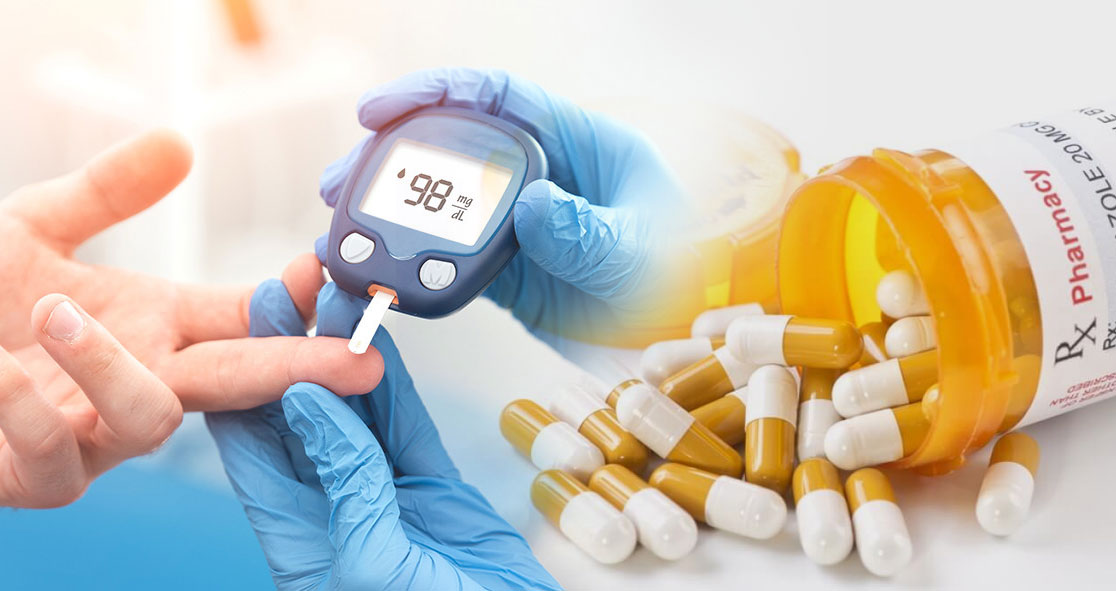A new Chinese study has found that commonly used heartburn drugs that belong to Proton Pump Inhibitors (PPIs) may increase the risk of type 2 diabetes.
The research, published online Monday in the journal Gut, looked at information from studies of over 200,000 American medical professionals and found that regular use of PPIs could increase your risk of type 2 diabetes by 24%.
The PPIs include rabeprazole (Aciphex), esomeprazole (Nexium), omeprazole (Prilosec), lansoprazole (Prevacid), pantoprazole (Protonix).
The study researchers have also found that the risk of diabetes significantly increases if you use the drugs on a regular basis and for a longer duration.
Lead author Jinqiu Yuan wrote, “Regular PPI use was likely to be associated with an increased risk of type 2 diabetes, particularly for those with prolonged use.”
All of the PPIs are widely available over-the-counter for the treatment of gastroesophageal reflux disease (GERD), peptic ulcers, and other GI issues.
Long-term use of these drugs has already been linked to osteoporosis, bone fractures, kidney disease, GI tract infections, and cancers related to the digestive system.
The study found that participants who took PPIs for less than two years had a 5% increased risk, and those who took them for more than two years has a 26% increased risk.
The researchers said their findings suggest that people who take PPIs for a long duration must regularly check their blood sugar levels to see whether they have developed type 2 diabetes.
The study also found that people who took other heartburn medications – such as famotidine (Pepcid), ranitidine (Zantac), and cimetidine (Tagamet) – had a 14% higher risk of developing type 2 diabetes.
However, the study did not prove a cause-and-effect association between PPIs and type 2 diabetes.
The researchers said it is unclear how taking these heartburn drugs might increase the risk of diabetes. However, they suspect that the drugs alter the body’s intestinal flora, which could possibly one of the reasons why the drugs have been linked to diabetes risk.
Another plausible explanation is that long-term use of PPIs could cause obesity, one of the risk factors of diabetes. However, more studies are required to understand the association.
Dr. David Bernstein of Northwell Health in Manhasset, N.Y., reviewed the findings and said, “PPIs are the most effective therapies for the treatment of acid reflux, gastritis and peptic ulcers. When first introduced, they were considered ‘miracle’ drugs as they alleviated previously refractory abdominal pains.”
Dr. Bernstein, who was involved in the study, continued, “This report, despite its weaknesses, adds yet another potential consequence to an already growing list of medical conditions associated with long-term PPI use.”
“Weaknesses included the observational nature of the study and lack of randomized comparison groups,” he added.
Dr. Arun Swaminath of Lenox Hill Hospital in New York City agreed to the limitations of the study. He said, “The main limitation of the study is that the true estimation of PPI exposure is based on memory and recall bias.”
“But, due to this study’s findings and other associated risks of long-term PPI use,” he said, “it’s reasonable to always see if a patient still needs their PPI” or if their dose could be lowered. Dr. Swaminath advised people to discuss the risks and benefits of PPIs with their doctors. As the drugs are easily available over-the-counter, “it will not be a simple process to identify all at-risk patients,” he noted.























